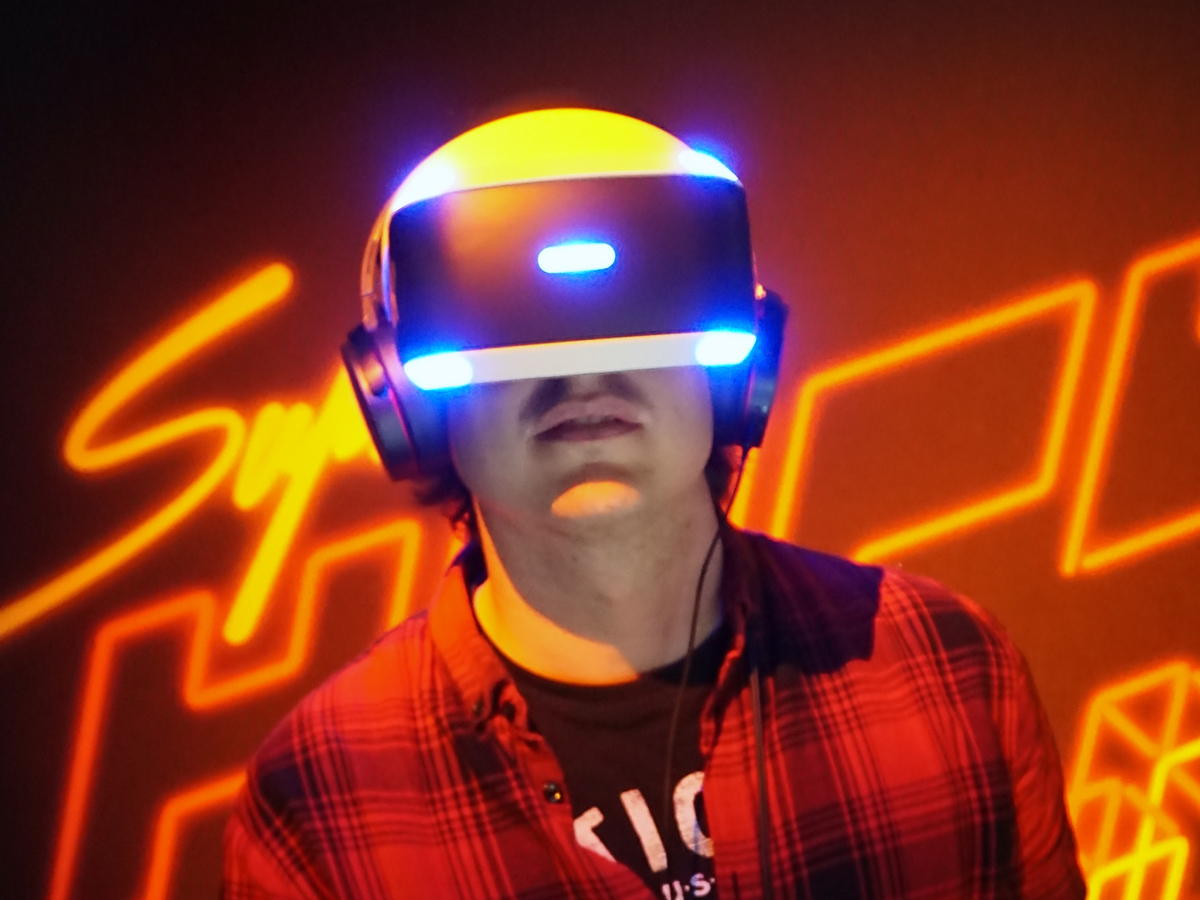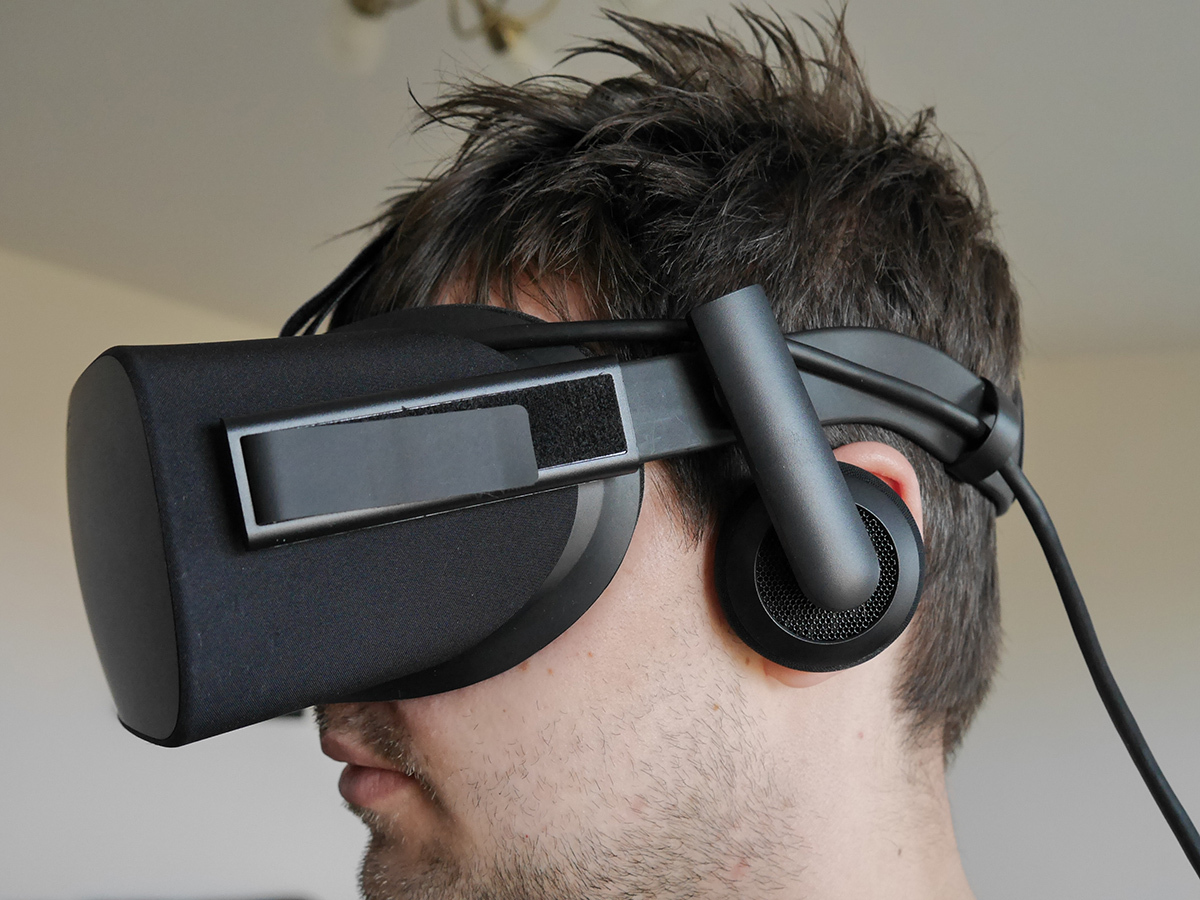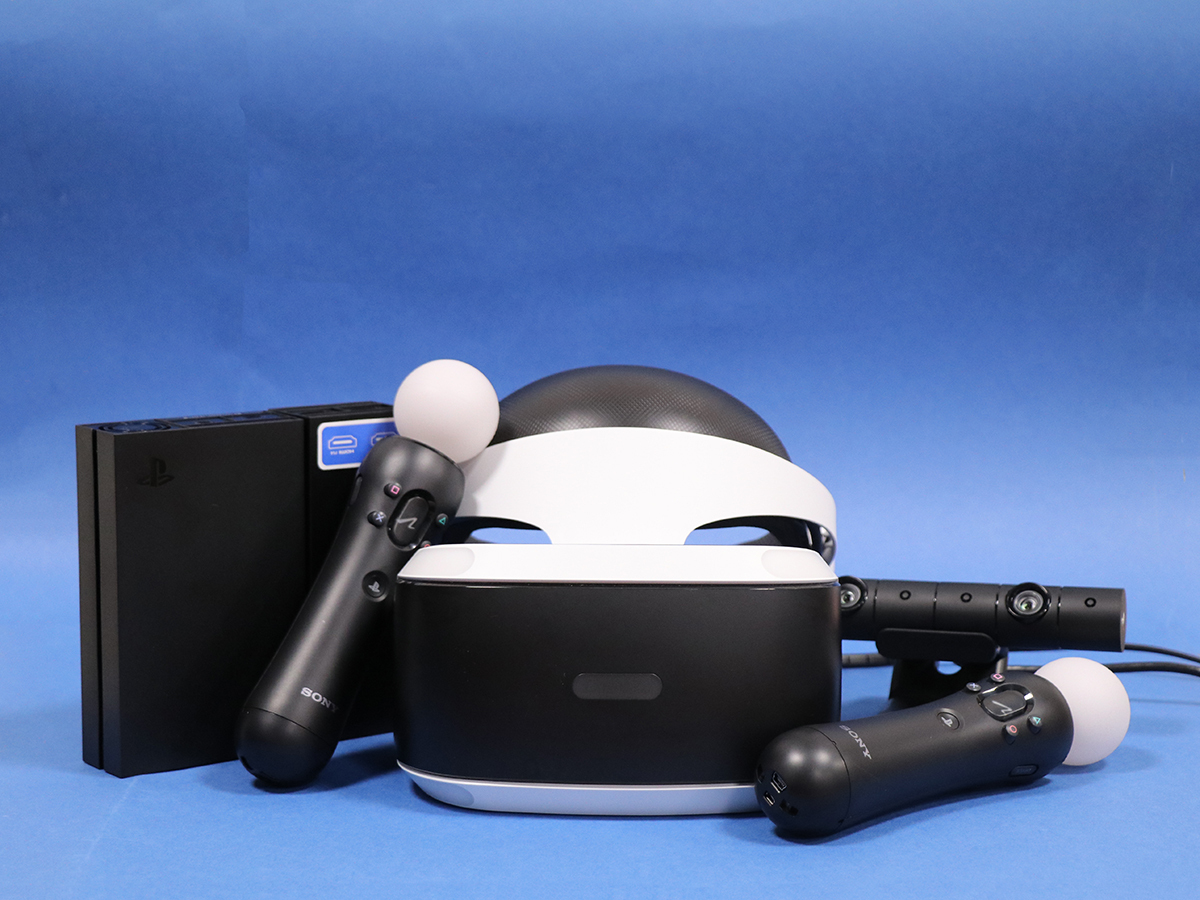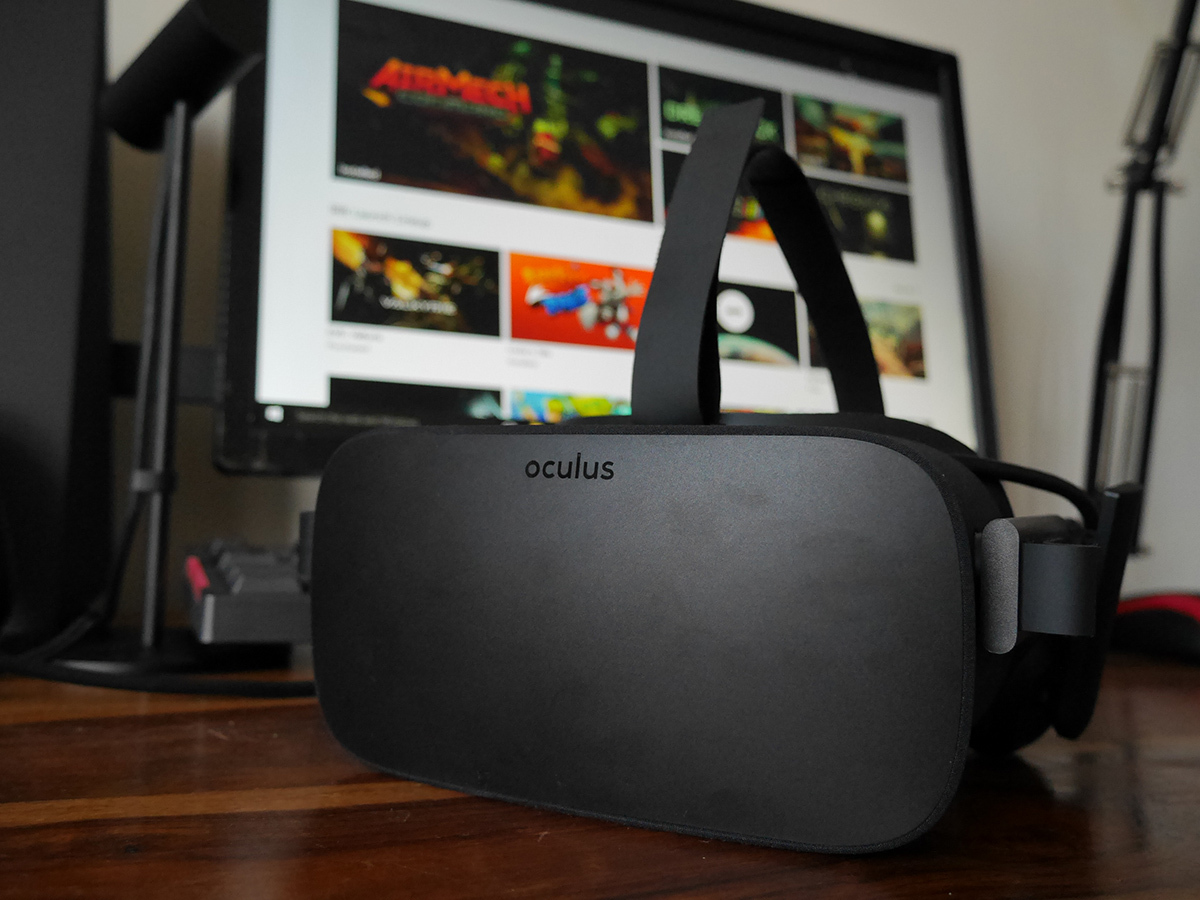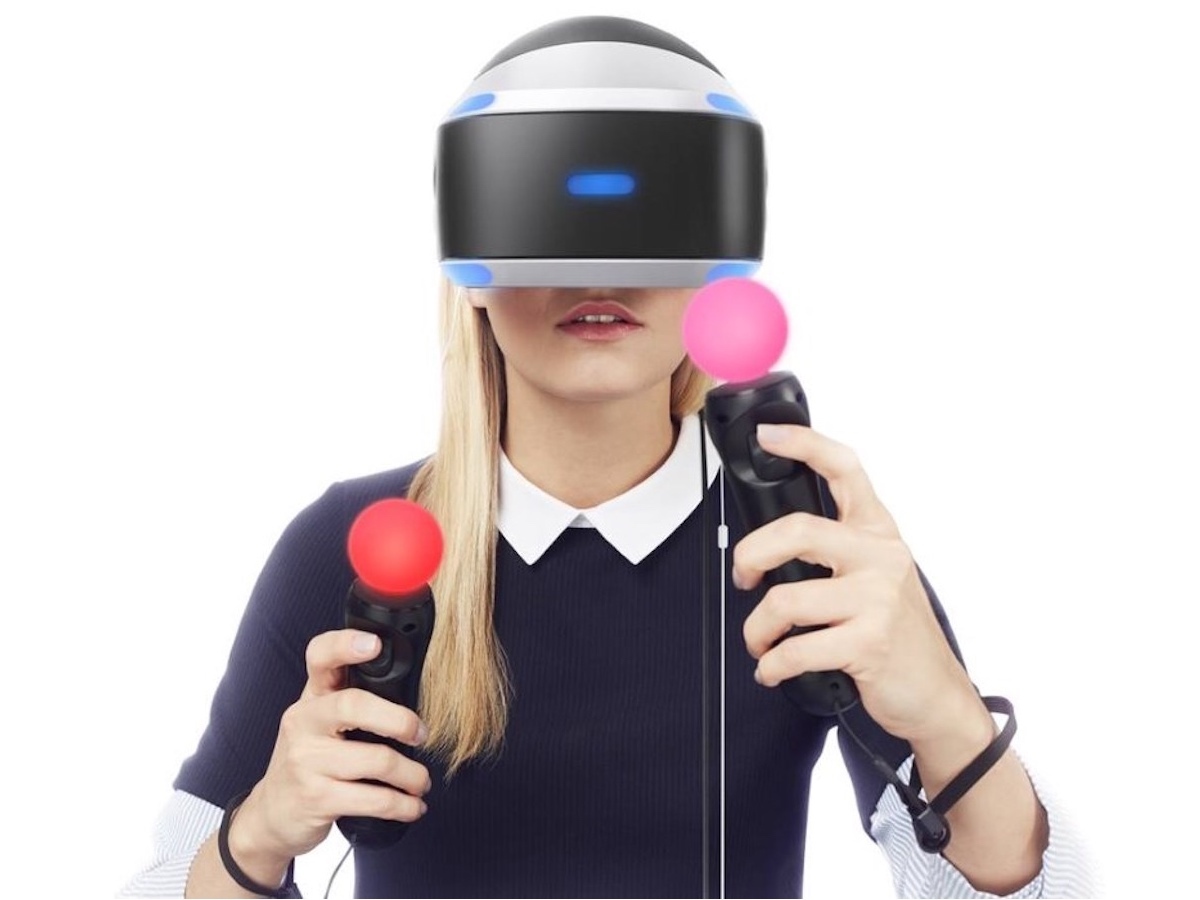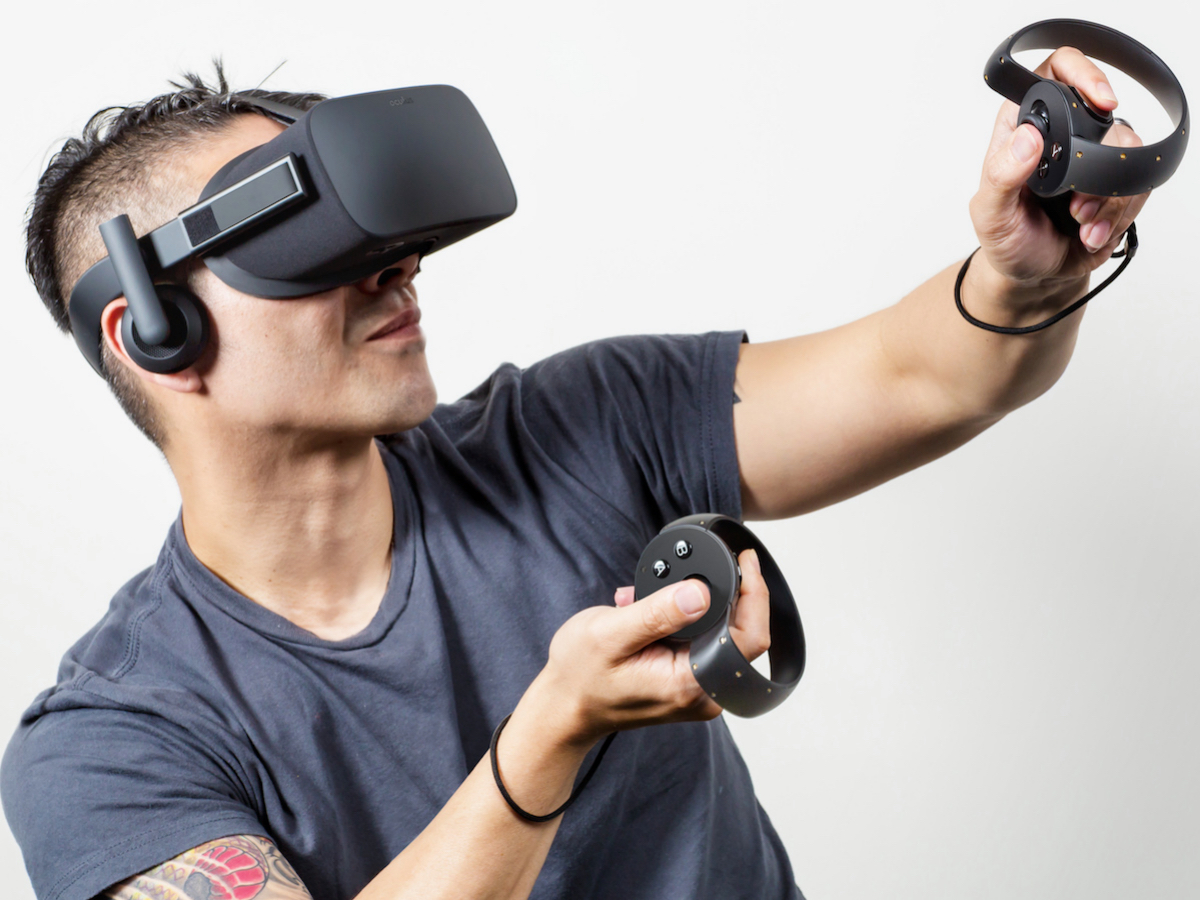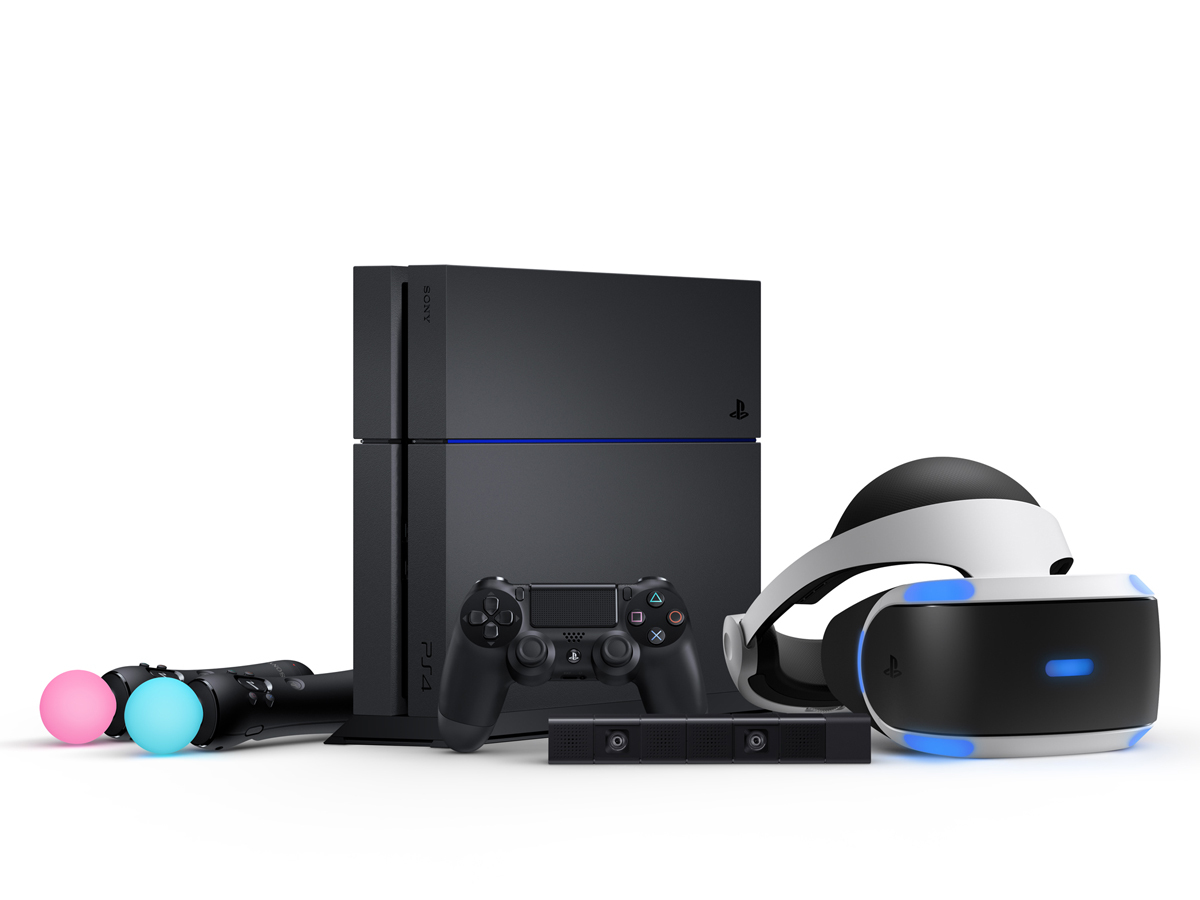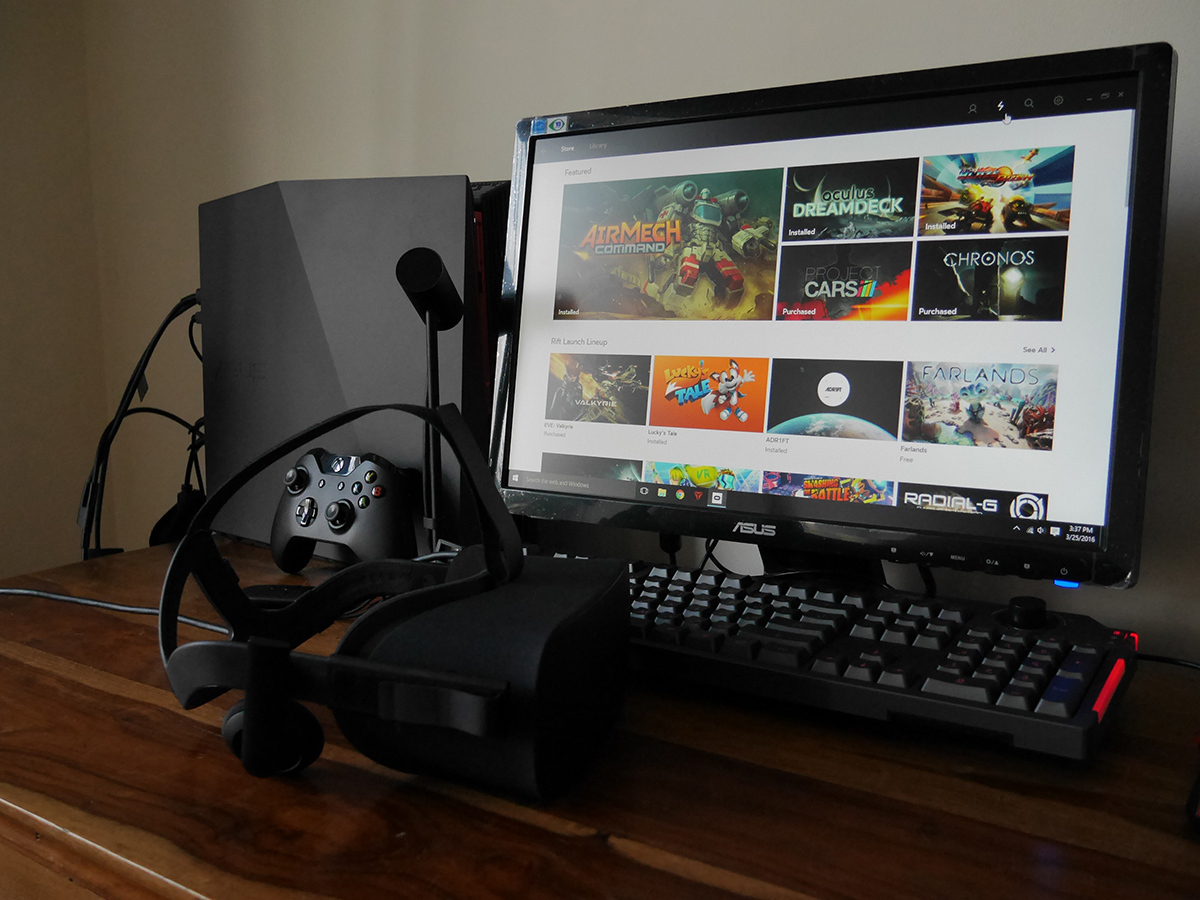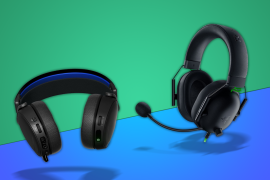Oculus Rift vs Sony PlayStation VR
Sony’s white knight takes on the dark wrath of Oculus
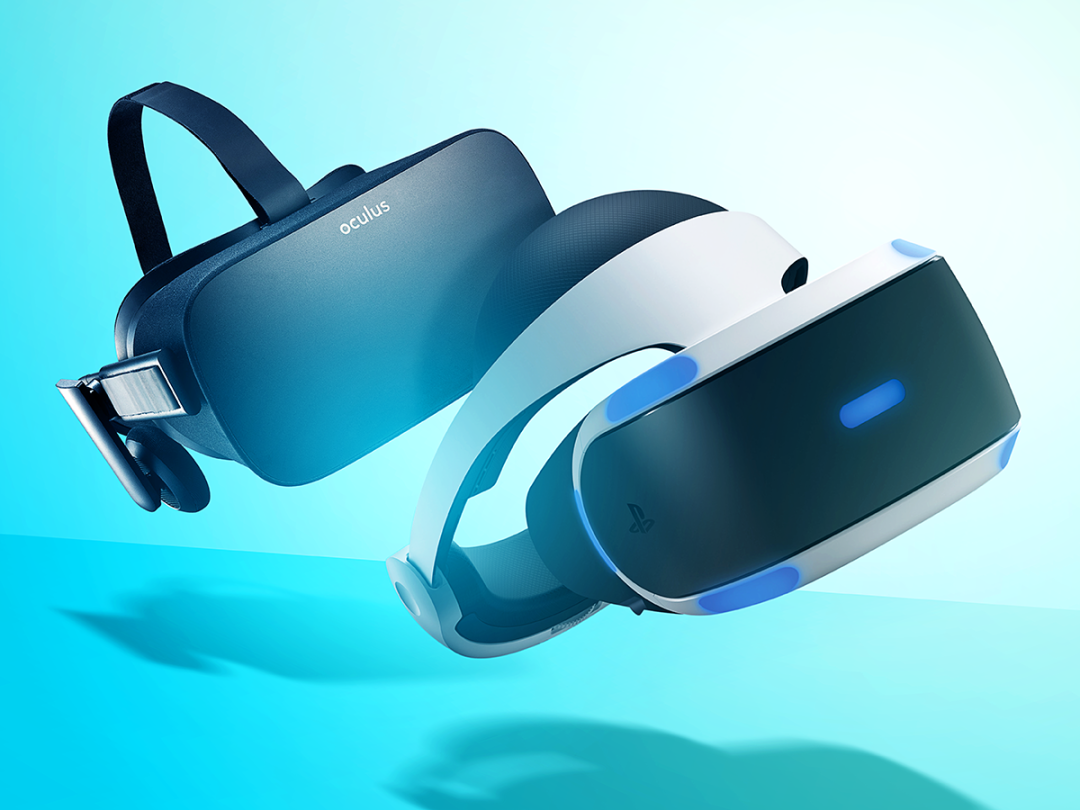
If you’ve been holding out on strapping yourself into a VR headset, the time has finally come to make your decision.
The Sony PlayStation VR is finally out, and joins its two main rivals the Oculus Rift and HTC Vive in the VR arena.
The Rift is the original modern VR headset which kicked off the revolution, but we don’t blame you if the PlayStation VR’s lower price tag has tempted you towards the Sony camp instead.
We’ve compared both headsets, after having reviewed both of them, to help you make the best decision. Let’s strap ourselves in, shall we?
Oculus Rift vs Sony PlayStation VR – Design and comfort
VR headsets have come a long, long way since initial bulky prototypes made design fans shudder in horror.
The PlayStation VR and Oculus Rift are both perfectly handsome devices in their own right, but they could not be more different.
In one corner, the Rift stands stoic and proud, in its sensible all-black paint job and muted, rounded design. Its rear straps go both around and over your head, while a pair of built-in adjustable headphones complete the setup, allowing you to enjoy 3D surround sound during your virtual escapes.
The PlayStation VR, on the other hand, could not be more different. It appears to have been plucked straight out of the future, having fallen through a wormhole and into our laps, directly from a Tron battle simulator.
Its all-white paint job and glowing blue side panels wouldn’t be out of place on a Daft Punk album cover, and it’s easily the more attractive device out of the two.
It’s more than just a pretty face though. The PlayStation VR is also easily the most comfortable VR headset we’ve ever tried, despite actually being one of the heaviest.
While it weighs more than the Rift, its adjustable halo-style band does a fantastic job of lifting the bulk of the headset’s weight from your face, removing any unsightly marks from your mug while keeping you cooler.
OculusRift vs Sony PlayStation VR – Setup
PC gaming has long been considered to be a big faff compared to the plug-and-play, ‘it just works’ nature of consoles.
Apart from the fact that you have to build them yourself – well, you don’t have to, but it’s all part of the fun – you have to deal with driver updates and fairly regular hardware upgrades, if you want to keep up with the latest and greatest gaming experiences.
Ironically, though, the Oculus Rift is far easier to setup than its PlayStation VR rival. All you have to do is plug in a few HDMI and USB cables for the Rift’s camera and the headset itself, along with pairing the bundled Xbox One controller with its wireless dongle, and you’re good to go.
The PlayStation VR on the other hand, demands much more effort. For one thing, there’s hefty Processor Unit (PU) which is separate to the PS4 console itself – and it’s not small. An HDMI cable passes from the PU to your PS4, along with a USB cable. You then have a cable for the headset itself, which splits into two and is also plugged into the PU.
Once that’s done, all you have to do is connect the PlayStation camera to your PS4, and you too, are ready to rock and roll.
Granted, it’s just plugging in a few more cables, but the extra bulk of the PU just makes everything quite messy – especially when you consider that a lot of PS4s are nestled beneath TVs in living rooms.
There’s another catch too. If you want to enjoy HDR gaming on your PS4 – and if you have a HDR-equipped TV, why wouldn’t you – you’ll be annoyed to hear that the PU doesn’t support HDR.
This means that you’ll have to faff around with the HDMI cable each time you want to switch between gaming on your TV in HDR, and donning the headset itself. Not ideal, we think you’ll agree.
Winner: Oculus Rift
Oculus Rift vs Sony PlayStation VR – Experience
Right then. Let’s get to it. Which headset actually offers the best, most immersive virtual experience?
Let’s start off with the specs. The Oculus Rift beats the PlayStation VR comfortably in the resolution stakes, with two 1080 x 1200 screens per eye, for a combined resolution of 2160 x 1200.
The PlayStation VR features a single 1920×1080 display, which boils down to 960 x 1080 per eye, although it does support a max refresh rate of 120Hz, compared to the Rift’s 90Hz.
In practice, the difference in resolution is very obviously apparent. Not only does the Rift’s extra resolution make everything noticeably sharper, but the sheer power of a gaming PC means that less graphical compromises have to be made.
In contrast, the PS4 simply can’t compete, and playing games like Eve Valkyrie side by side on both headsets immediately shows off the lower quality graphical experience served up by the PlayStation VR.
Having said that, the PlayStation VR still offers an excellent level of immersion, and we have to lavish sony with credit where it is due – the extra refresh rate and oomph provided by the Processing Unit means that games run buttery smooth, without a hitch – which is incredibly important for ensuring that you don’t feel like vomming mid-space battle.
Winner: Oculus Rift
Oculus Rift vs PlayStation VR – Controls
At the time of writing, the Oculus Rift’s motion controls have yet to be released, which means you’re stuck using the Xbox One controller for the time being.
We say stuck as if it’s a bad thing – it is of course a very decent controller, and you’ll be perfectly happy using it. The trouble though, is that it’s not particularly immersive, or natural.
The PlayStation VR supports Sony’s Move controllers which, while not absolutely necessary (unlike the PlayStation Camera), are still worth getting if you can spare the extra cash, simply because they are much more immersive than using a controller.
In games like Batman Arkham VR and London Heist, it definitely feels more natural throwing around batarangs and firing off a gun using the Move controllers.
They’re a little buggy and inconsistent at times, mind, and aren’t perfect, but immersion is the name of the game when it comes to VR, so Sony nabs this round.
We’ll be sure to update this comparison when the Oculus’ motion controllers land though, so stay tuned.
Winner: Sony PlayStation VR
Oculus Rift vs Sony PlayStation VR – Games
The Oculus Rift’s games library is better stocked than the PlayStation VR’s, which will come as no surprise given that the Rift has been out considerably longer, with developers having years to work with the hardware.
Games that are available on both platforms, like Eve Valkyrie, also look noticeably better on the Rift, which gives it another advantage.
The PlayStation VR though, has some excellent exclusives in its arsenal. Batman Arkham VR and London Heist are two highly polished, immersive games – but they’re far too short, clocking in around two and a half hours of gameplay each.
The Rift wins yet another round, then, but the PlayStation VR’s library shows promise, from what we’ve seen so far, so we’ll revisit this round in the months to come, to see if anything tips into Sony’s favour.
Winner: Oculus Rift
Oculus Rift vs Sony PlayStation VR – Which is better?
The Oculus Rift is the clear winner here. It offers a superior, more polished VR experience, with a better selection of games.
The thing is, if you’re buying a gaming PC and the Rift, you’re looking at a total spend of around £1500, which is a huge amount of cash to part with in one go.
In comparison, a Playstation 4, a PlayStation VR headset, the camera and Move controllers all weigh up to around half the amount of the full Oculus Rift setup.
With 45 million PS4 consoles out there in the wild too, chances are you can take the console cost out of the equation too, making the PlayStation VR setup even cheaper.
If you’re stuck deciding between the two and want the best possible VR experience however, there’s no question that the Oculus Rift is the one you should be strapping to your face.
